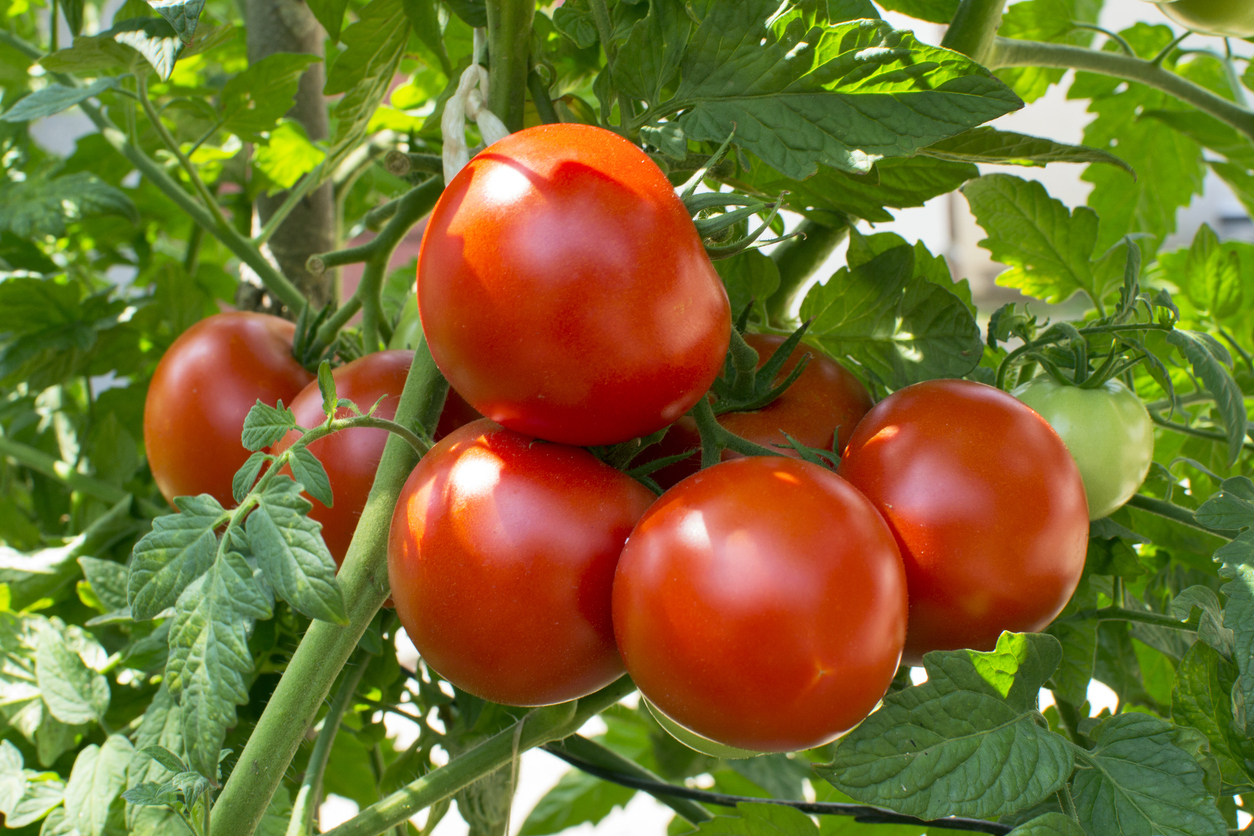
Scientists Identify Tomato Plants' Mechanism for Heat Tolerance
November 20, 2024| |
Brown University biologists studied tomato varieties that produce fruit in exceptionally hot growing seasons and found what makes some types more heat tolerant, yielding insights that could help tomatoes adapt to climate change, as rising temperatures are predicted future crop yields.
The researchers identified the growth cycle phase when tomatoes are most vulnerable to extreme heat, and the molecular mechanisms that make the plants more heat tolerant. Study author Sorel V. Yimga Ouonkap, a research associate in molecular biology, cell biology, and biochemistry at Brown said they tried to figure out thermoregulation at a molecular and cellular level to target those in commercial varieties.
Ouonkap focused on the pollen tube growth phase of the plant reproductive cycle. He studied different tomato plants known for their ability to produce fruit in exceptionally hot growing seasons, including varieties native to the Philippines, Russia, and Mexico. With scientists at the University of Arizona, Ouonkap studied how gene expression changes when tomato pollen is exposed to high temperatures. The Arizona team found that exposure to high temperature solely during the pollen tube growth phase limits fruit and seed production more significantly in tomato plants that were heat sensitive than those that were heat tolerant.
Ouonkap also found that pollen tubes from the Tamaulipas tomato variety, known to be heat tolerant, have enhanced growth under high temperatures. His molecular analysis of the pollen tube in these tomatoes allowed the research team to identify the mechanisms associated with thermotolerance.
For more details, read the article in the News from Brown.
| |
You might also like:
- Gene-edited Tomato Exhibits Improved Drought Resistance and Fruit Yield
- Gene Editing to Improve Postharvest Life of Tomato
- Researchers Develop Tomato Plants that Contain Full Genetic Material of Both Parent Plants
Biotech Updates is a weekly newsletter of ISAAA, a not-for-profit organization. It is distributed for free to over 22,000 subscribers worldwide to inform them about the key developments in biosciences, especially in biotechnology. Your support will help us in our mission to feed the world with knowledge. You can help by donating as little as $10.
-
See more articles:
-
Plant
- Scientists Identify Tomato Plants' Mechanism for Heat Tolerance
- International Research Team Publishes Barley Pangenome
- Scientists Produce Sweeter Tomatoes Without Yield Penalty
- EFSA GMO Panel Releases Scientific Opinion on Soy Leghemoglobin Produced from GM Komagataella phaffii
- Leading Breakthroughs: Gene Drives for a Sustainable Agriculture and Biodiversity Conservation
- Kenya Assures Public of Biosafety Guidelines
- Key Eggplant Gene Boosts Resistance to Bacterial Wilt
-
Environment
- FAO Analysis Identifies Opportunities, Gaps and Risks Related to Agrifood Climate Solutions
-
Read the latest: - Biotech Updates (January 28, 2026)
- Gene Editing Supplement (January 28, 2026)
- Gene Drive Supplement (February 22, 2023)
-
Subscribe to BU: - Share
- Tweet

